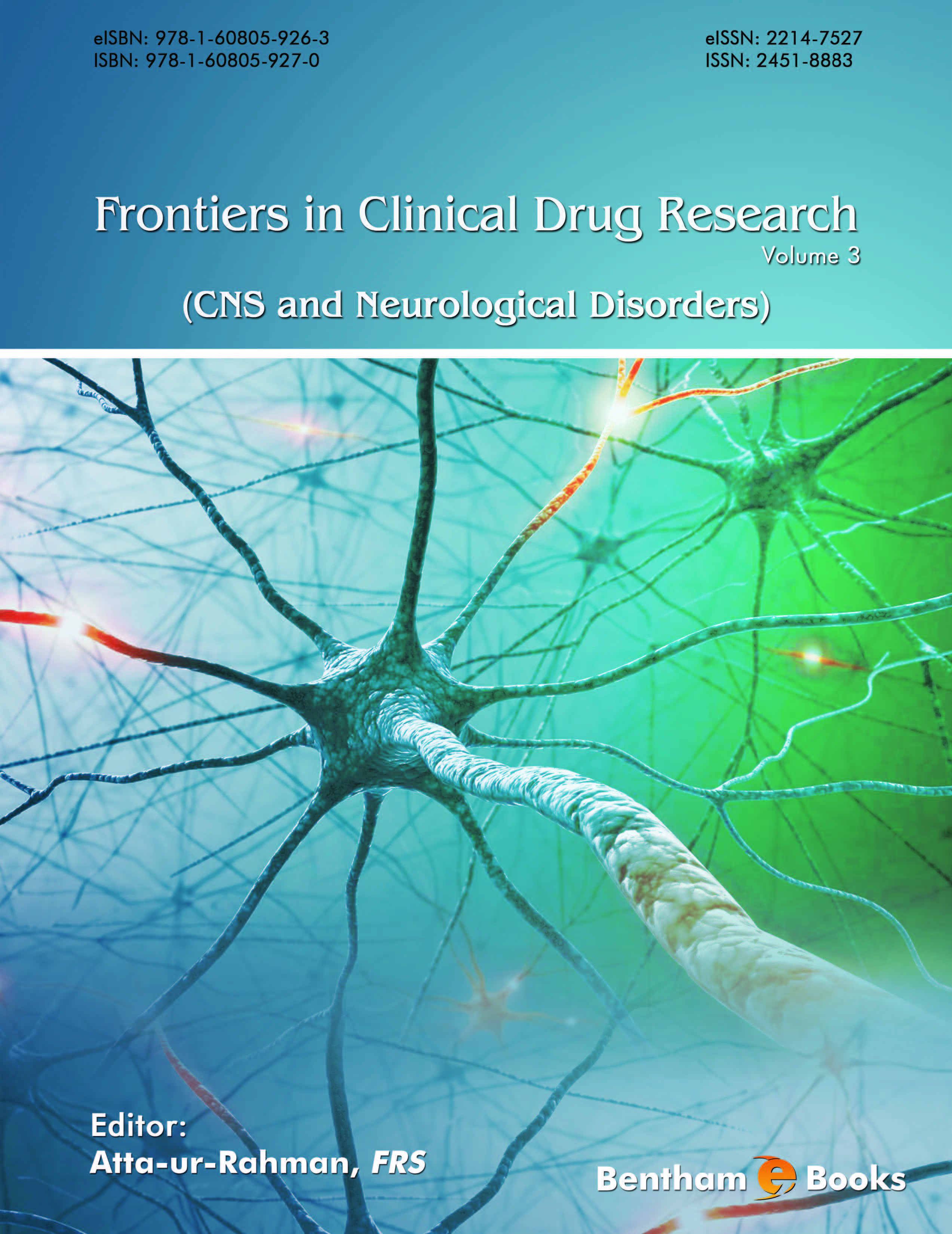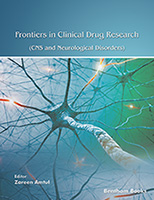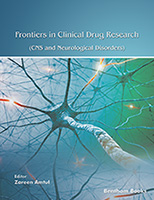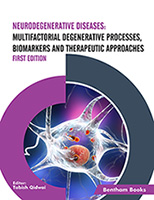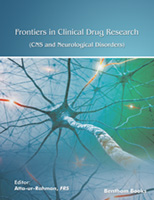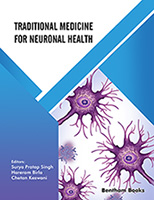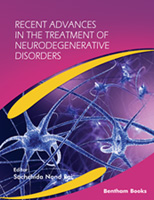Neurological disorders are the most common age-related multifactorial set of diseases which deal
with the structural, chemical or electrical abnormalities in the nervous system. With the
progression and development of these disorders, neurodegeneration prolongs in the brain,
aggravating the symptoms. It also has social impacts as it affects both the patients and their families.
Several specialists of neurology and clinical neuropsychology are aiming at preventing and curing
these disorders through various therapeutic strategies.
The book series “Frontiers in Clinical Drug Research – CNS and Neurological Disorders”, is
intended to deliver the most noteworthy developments in the field in the form of cutting edge
reviews written by professionals. The current volume 3 of this book series is a collection of well
written chapters contributed by some of the most prominent researchers in the field. It includes
new therapeutic strategies and evidence-based cure and prevention for CNS disorders.
Tetrahydroprotoberberines (THPBs) belong to a new class of DA antagonists that have attracted
much attention in biochemical and neuropharmacological studies. This group of compounds may
have a neuroprotective role by modulation of dopamine (DA) associated diseases as it targets DA
receptors in both the nigrostriatal and mesocorticolimbic dopaminergic (DAergic) pathways. Yang
et al., in Chapter 1 broadly describe the key role of ATP-sensitive K+ (KATP) channels of
substantia nigra compacta DA neurons as a novel target for Tetrahydroprotoberberines’
neuroprotection. The recent new findings indicate that targeting at ATP-sensitive K+ (KATP)
channels in SNc DA neurons may present a novel mechanism underlying THPBs’ neuroprotective
effects
Cannabinoids are a group of chemical compounds that target cannabinoid receptors on cells that
are responsible to suppress the release of neurotransmitter and were found to modulate neuronal
functions including neurogenesis. Chapter 2 by Nabissi et al. highlight the role of CB receptors
and CB related receptors to regulate neural stem cells (NSCs) differentiation. This review also
discusses the potential stem cell-based therapeutic strategy of cannabinoids and related receptors
for CNS neurodegenerative disorders.
α-Amino-3-hydroxy-5-methyl-4-isoxazole-propionic acid (AMPA) glutamate receptors are known
to mediate fast synaptic transmission in the central nervous system (CNS). Disruption of this
activity has been found in the pathophysiology of a variety of CNS disorders. Hanada et al., in
Chapter 3 use the first approved antiepileptic drug, perampanel, as an example of an effective
strategy to target AMPA receptors.
PolyQ spinocerebellar ataxias are rare neurodegenerative disorders that involve cerebellar
degeneration and dysfunction. Kazachkova and Lima in Chapter 4 comprehensively discuss the
common pathological mechanisms involved in the pathogenesis of polyQ ataxias. This review also
summarizes the potential benefits of various pharmacological agents that have been pre-clinically
studied.
Studies have shown that ketogenic diet is an effective therapy for childhood intractable epilepsy
and that it leads to 30-40% reduction in seizure frequency. The role of modified Atkins diet and
Low Glycemic Index treatment is reviewed in Chapter 5 by Gulati and Chakrabarty. This chapter
also summarizes certain side effects associated with this dietary therapy. investigations regarding
dietary therapy may have an impact in other neurological conditions such as migraine, brain
tumour and autism.
Diabetes is a risk factor for cognitive dysfunction or dementia, especially in Parkinson’s disease
(PD) and Alzheimer's disease (AD). It also involves multiple organ dysfunction affecting many
organs including the eyes, liver, kidney and heart. The comprehensive chapter 6 by Ian James
Martins discusses the importance of anti-aging therapies, including diet, exercise and selective drug
therapy that may prevent calorie surplus and activation of calorie sensitive genes Sirtuin 1 (Sirt 1),
which in turn can avert aging, PD and AD.
The 3rd volume of the book series represents the results of a significant amount of work by
eminent researchers in the field. I wish to thank the excellent team of Bentham Science Publishers,
especially Mr. Shehzad Naqvi (Senior Manager Publication), led by Mr. Mahmood Alam (Director
Publications), who deserve all appreciation.
Atta-ur-Rahman, FRS
Kings College
University of Cambridge
Cambridge
UK

